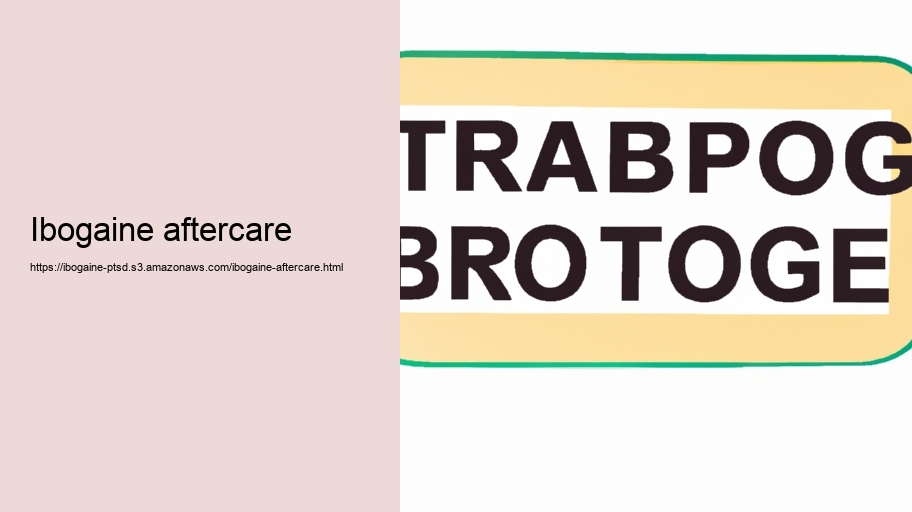Ibogaine Aftercare: Nurturing the Seed of Transformation
The journey through addiction is often long and fraught with challenges. Ibogaine, a naturally occurring psychoactive substance found in the roots of the African shrub Tabernanthe iboga, can serve as a powerful milestone on that path. Known for its potential to alleviate withdrawal symptoms and interrupt the cycle of drug dependency, ibogaine has garnered attention as an unconventional but promising aid in the battle against addiction. However, it's not just about the singular experience; what follows—the aftercare—is equally pivotal to ensure enduring success.
Aftercare is where the seed of change planted by an ibogaine treatment germinates into lasting transformation. It's about nurturing growth, supporting resilience, and fostering a sustainable return to daily life without reliance on substances. This essay explores the critical components of ibogaine aftercare that contribute to this delicate process.
Firstly, let’s consider integration—a term that signifies making sense of one’s experiences during treatment and weaving them into their ongoing narrative. Ibogaine can induce profound insights and emotional revelations which require processing post-treatment. Integration therapy typically involves counseling or therapeutic sessions where individuals reflect upon their ibogaine visions and emotions under professional guidance. This helps translate profound realizations into actionable steps towards recovery.
Closely related is psychological support—essential due to potential lingering effects from both addiction and ibogaine use itself. A comprehensive aftercare program should include access to psychologists or psychiatrists who understand the unique mental health considerations relevant to post-ibogaine patients.
Next up is community support—human beings are inherently social creatures who thrive on connection; those recovering from addiction are no exception. Peer-support groups such as 12-step programs or other recovery communities provide shared understanding, accountability, and encouragement which can be immensely beneficial during this vulnerable time.
Physical wellness also plays a role—it encompasses proper nutrition, exercise, sleep hygiene, and sometimes complementary therapies like massage or acupuncture that can help restore balance within one's body after substance abuse disorder treatments like ibogine therapy .
Moreover , relapse prevention strategies form another cornerstone —they empower individuals by equipping them with tools needed recognize triggers , develop coping skills , create healthy routines , set boundaries—all aimed at minimizing risk falling back old habits .
It must be acknowledged that legal status accessibility varies widely across globe ; therefore so do formal systems offering structured frameworks for effective follow-up care . In regions where regulatory approval still lags behind anecdotal success stories personal initiative establish personalized network vital safeguarding gains made treatment session itself .
To conclude while short-lived encounter may have potential disrupt entrenched patterns behavior true victory comes steadfast commitment day-to-day choices reinforce newfound freedom . As such holistic well-rounded approach infinitely more likely yield positive outcomes than any single intervention could hope achieve alone . Careful planning dedication essential ingredients recipe full meaning true word "recovery".
